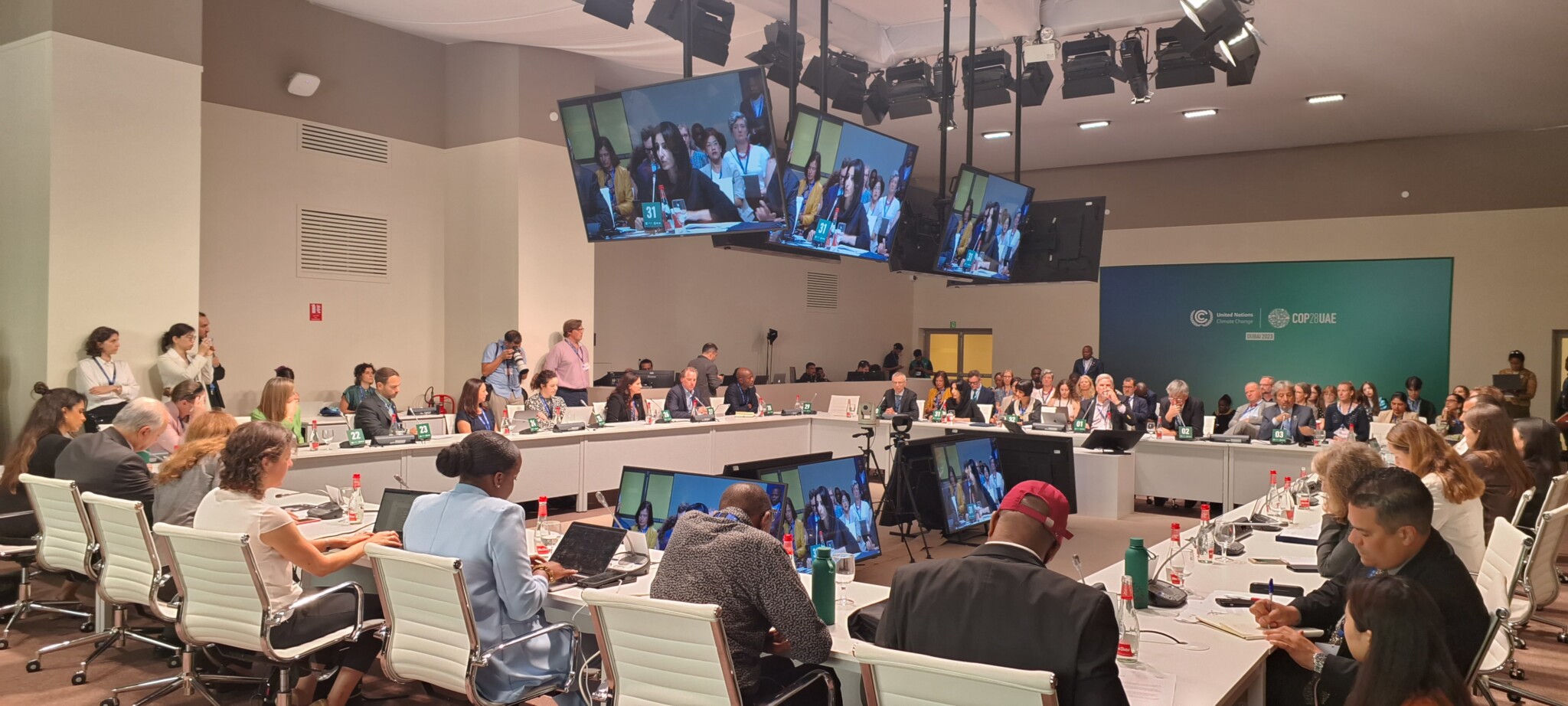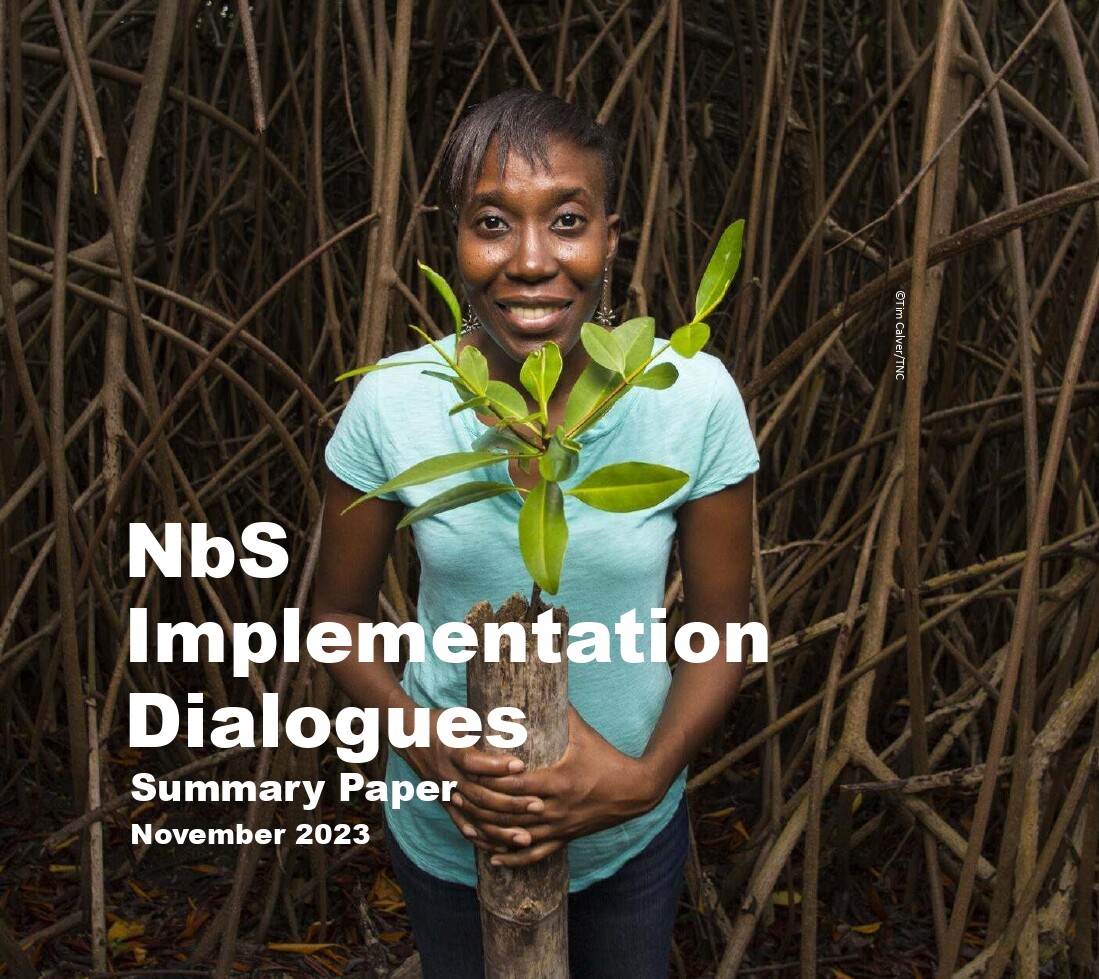Ministers and UN climate leaders enhance ambition on nature for climate, ahead of the Global Stocktake negotiations

Read more
Related articles for further reading
In a pivotal move ahead of the conclusion of the first Global Stocktake negotiations at UNFCCC COP28, Ministers from Germany, Colombia and Granada, along with high-level representatives from the UNFCCC and UN CBD call on other Parties to enhance political leadership and implementation of nature-based solutions at scale for climate action.
Led by the Government of Colombia and the German Federal Ministry for the Environment, Nature Conservation, Nuclear Safety and Consumer Protection, with the support of the High-level Climate Champions and the Nature4Climate Coalition, a Ministerial meeting addressed the need for synergistic and integrated action on nature and climate, following the recent adoption of the Kunming-Montreal Global Biodiversity Framework (KMGBF) and COP28 Presidency priorities agenda for Nature, Land Use and Oceans.
Ministers signed an open letter to the COP28 Presidency/SB Chairs outlining the importance of recognizing the first GST as a milestone in the implementation of the Paris Agreement and the critical role of nature and biodiversity as a solution to the global emergency.
Signatories of the GST expectations letter include:
- María Susana Muhamad González, Minister for the Environment and Sustainable Development, Government of Colombia
- Steffi Lemke, Federal Minister for the Environment, Nature Conservation, Nuclear Safety and Consumer Protection, Government of Germany
- Kerryne James, Minister for Climate Resilience, Environment and Renewable Energy, Government of Grenada
- H.E. Razan Al Mubarak, UN Climate Change High-Level Champion, COP28
- David Cooper, Executive Secretary, UN Convention of Biological Diversity
- Manuel Pulgar-Vidal, CBD Action Agenda Champion for Nature and People
Colombian Minister of the Environment and Sustainable Development, Susana Muhamad, said: The GST provides a critical moment to recognize the importance of just and inclusive means of implementation, and address the significant finance gap for nature-based solutions and/or ecosystem-based approaches. In particular, the involvement and respect for the rights of Indigenous Peoples and local communities is critical, in addition to the urgent need to align financial flows to enable the transformations required to deliver the Paris Agreement goals.
State Secretary Stefan Tidow, Federal Ministry for the Environment, Nature Conservation, Nuclear Safety and Consumer Protection (BMUV), said: ‘With the recent adoption of the Kunming-Montreal Global Biodiversity Framework (KMGBF) and its critical safeguards for people presents an opportunity to move forward and focus on the implementation of nature-based solutions and/or ecosystem-based approaches. Never has there been a more urgent need for enhanced international cooperation and synergies, including through capacity building, scientific and technical cooperation, and technological resources, to strengthen national capabilities to anticipate and monitor the impacts of climate change on biodiversity and biodiversity-dependent communities.’
Implementation Dialogues
Nature-based solutions and/or ecosystem-based approaches, as referenced in the decision text of the COP27 Implementation Plan, are “critical to deliver adaptation to climate change and mitigation and are central to enhancing international cooperation for climate action”. However, the implementation and financing of these solutions are severely delayed, reducing the opportunity to accelerate the delivery of global targets, such as the Paris Agreement and the KMGBF.
The roundtable concluded the Nature-based solutions Implementation Dialogues held at the UNFCCC Regional Climate weeks in Latin America, Africa, Middle East and North Africa (MENA) and Asia-Pacific, where participants identified priority areas and constraints to accelerate the implementation of landscape-scale nature-based solutions and/or ecosystem-based approaches.
This year’s COP28 marks the conclusion of the first GST, providing the ultimate opportunity to inform Parties updating their Nationally Determined Contributions (NDCs) to include clear recommendations needed to facilitate cooperation and systemic transformation, including positioning nature and biodiversity as integral for climate action and overall connectivity with other national key strategies such as the UNFCCC’s National Adaptation Plans (NAPs), and the CBD’s National Biodiversity Strategies and Action Plans (NBSAPs).
H.E. Razan Al Mubarak, UN Climate Change High-Level Champion, COP28, said: “As a High-level Climate Champion, I’m deeply committed to integrating regional insights on locally-responsive nature-based solutions for climate action into national nature and climate strategies. Our mission is unequivocal: we aim to rapidly transition to low-emission and resilient economies which function in harmony with biodiversity. Nature-based solutions and ecosystem approaches are not mere alternatives, but fundamental tools for this transition. It is critical to recognise the role they play in the outcome of the first global stocktake to enable an adequate response and ensuing action from the global community. Leveraging the power of nature is necessary to deliver a resilient and sustainable future but also offers a golden opportunity to truly meet the needs of our local communities.”
Manuel Pulgar-Vidal, WWF’s Global Climate and Energy lead and CBD Action Agenda Champion for Nature and People, said: “Our efforts to limit global warming to 1.5C will not succeed unless we take equal action to tackle our accelerating loss of biodiversity and deliver an integrated response to the planetary emergency. Today’s letter puts pressure on leaders to ensure that the first Global Stocktake of the Paris Agreement is the moment that brings together action on climate and nature. Countries must put nature at the heart of their climate plans and work together on the implementation of nature-based solutions that deliver for people, climate, and nature. We cannot afford to wait another moment. We need action now.”
James Lloyd, Nature4Climate Coalition Lead, said: “At this COP, we are stressing the importance of implementation to secure a nature-positive future for all. The NbS Implementation Dialogues have sent a clear signal from across the regions that we urgently need to address social, political, economic and technology barriers, such as capacity building, integrated planning and financing for nature, to accelerate delivery and move from words into action. We hope that this inclusive and collaborative approach can influence the details of the Global Stocktake outcomes, finally recognising that making climate and nature action integral to our economies and lives is critical.”
